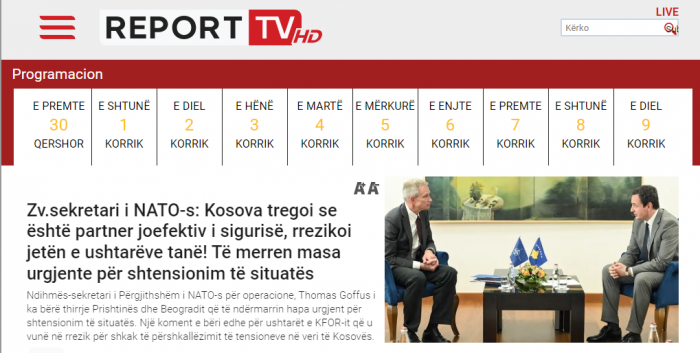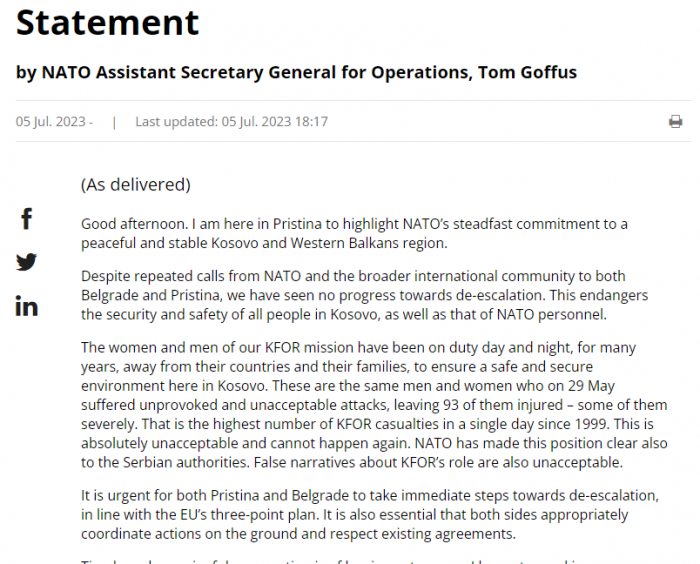Prepared by: Ridona Berisha
On July 5th in Prishtina, Prime Minister of Kosovo, Albin Kurti, held a meeting with NATO’s Assistant Secretary-General for Operations, Thomas Goffus. During this meeting, Kurti informed Goffus about the chronological framework of events starting from November 5th of the previous year when four Serbian mayors in the northern municipalities of the country resigned in an organized manner.
Referring to this meeting, several portals in the Albanian language shared an article with the title: “Endangered the lives of our soldiers’/ NATO’s Deputy Secretary: Kosovo showed it is an ineffective security partner! Tensions to be reduced.”

However, this title does not reflect the official statement of Goffus published on NATO’s official website.
“Effective cooperation is how Kosovo demonstrates it can be an effective security partner to NATO. Unfortunately, we have seen a decline in our practical and political coordination.” It is said in their statement.
Nowhere does it mention that Goffus does not consider Kosovo an “ineffective security partner,” even though he emphasizes the lack of coordination for the recent situation in the north.

Regarding the meeting, Prime Minister Kurti has also made a statement, expressing gratitude to the NATO official for their contribution and the crucial role of this alliance in the liberation and security of Kosovo.
“The Prime Minister stated that the Government of Kosovo is committed to full cooperation and coordination with NATO’s mission, KFOR, and that information sharing and good coordination should contribute to both the rule of law in northern Kosovo and the improvement of the security situation,” reads the statement from the Prime Minister’s Office (PMO), received via email.
The government of Kosovo has been criticized by both local and international actors for unilateral decision-making and lack of coordination following the appointment of mayors to municipal buildings. Despite this, KFOR, since May 29th, engaged in providing security around the facilities previously managed by the Serbian List until April 23rd. At least 25 members of this force were injured after clashes with violent protesters in Zvečan.
The recent intervention in the north is among the rare cases when KFOR gets involved in such tense situations, even though it is the third security response in the country, after the Kosovo Police and EULEX.
*This article is published as part of the Western Balkans Regional Initiative against disinformation. Western Balkans Anti-Disinformation Hub: exposing malign influences through watchdog journalism.



